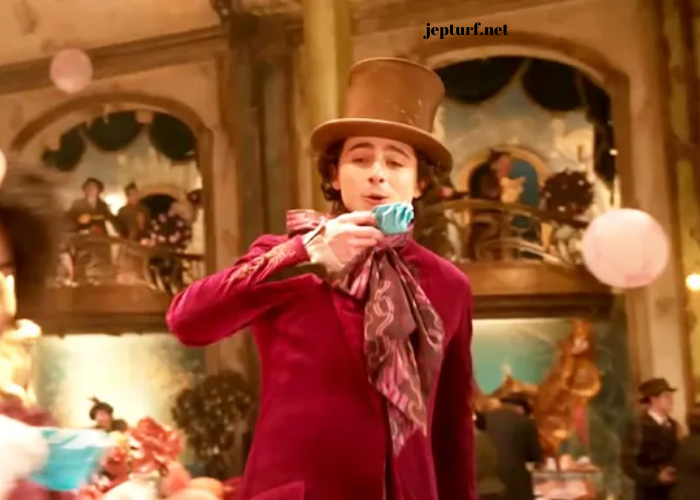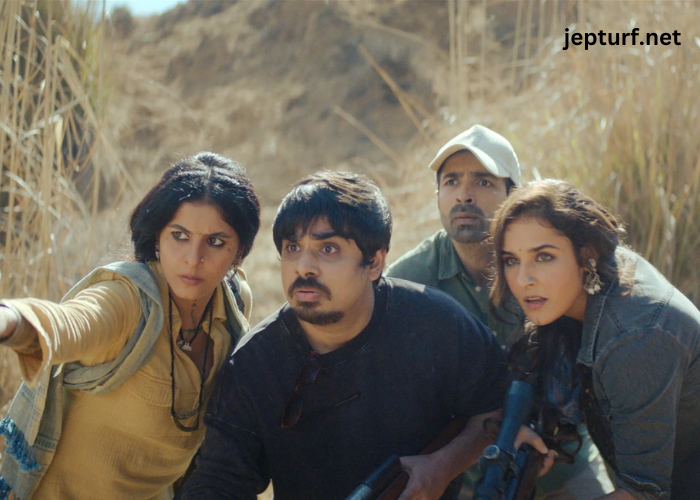In the fast-paced and ever-evolving world of entertainment, there is an endless array of options to choose from, each offering a unique experience to captivate our senses and emotions. From the mesmerizing world of music to the magical realm of movies and beyond, the entertainment industry has become an integral part of our lives. In this article, we will explore the multifaceted world of entertainment, delving into the realms of music, movies, and beyond, to understand the profound impact they have on society and individuals alike.
The Power of Music
Music is a universal language that transcends boundaries, connecting people from different cultures, backgrounds, and walks of life. It has the remarkable ability to evoke emotions, trigger memories, and inspire creativity. The world of music is a diverse and expansive one, catering to a wide range of tastes and preferences. From classical symphonies to the latest chart-toppers, music offers something for everyone.
Musical Genres and Diversity
One of the most fascinating aspects of music is its incredible diversity. There are countless musical genres, each with its own distinct characteristics and fan base. Whether you’re a fan of the soulful melodies of jazz, the pulsating beats of electronic dance music (EDM), or the poetic storytelling of country, there’s a genre that speaks to your soul.
Music genres often reflect the cultural, social, and historical context in which they originate. For example, reggae music emerged in Jamaica in the late 1960s and is deeply rooted in the island’s history and struggles. Hip-hop, born in the Bronx in the 1970s, has become a global phenomenon, with artists from all over the world contributing to its evolution.
The Emotional Impact of Music
One of the most remarkable qualities of music is its ability to convey and elicit a wide range of emotions. Whether it’s the heartache expressed in a soulful ballad, the joyous celebration of a lively folk song, or the adrenaline rush of a rock anthem, music has a direct line to our emotions.
Numerous scientific studies have explored the connection between music and emotions. It has been shown that music can trigger the release of dopamine, a neurotransmitter associated with pleasure and reward, in the brain. This explains why we often turn to music in times of sadness to find comfort or listen to upbeat tunes when we need a boost of energy.
The Evolution of the Music Industry
The music industry has undergone significant transformations over the years, driven by advances in technology and changes in consumer behavior. The transition from vinyl records to cassette tapes, CDs, and digital downloads has shaped how we consume music. Today, streaming platforms like Spotify, Apple Music, and YouTube have revolutionized the way we access and discover new music.
These platforms offer vast libraries of songs, enabling listeners to explore different genres and discover emerging artists with ease. Additionally, social media has become a powerful tool for musicians to connect with their fans and promote their work, democratizing the music industry in many ways.
Live Music: A Thrilling Experience
While digital platforms provide convenient access to music, there is no substitute for the electrifying experience of attending a live concert. Live music events bring people together in a shared celebration of sound, creating a sense of unity and connection among attendees.
From massive stadium tours featuring chart-topping superstars to intimate performances in small venues, live music offers something for everyone. The anticipation, the energy of the crowd, and the raw emotion of the performers make live concerts a unique and unforgettable experience.
The Magic of Movies
Movies have been a source of fascination and entertainment for over a century. From the earliest silent films to today’s blockbuster hits, cinema has evolved into a powerful medium that tells stories, transports us to new worlds, and ignites our imagination.
The Art of Filmmaking
The process of making a movie is a complex and collaborative endeavor that combines various art forms, including acting, writing, directing, cinematography, and sound design. Filmmakers work tirelessly to create visually stunning and emotionally compelling narratives that resonate with audiences.
The art of filmmaking extends beyond the screen, as filmmakers use symbolism, metaphors, and storytelling techniques to convey deeper messages and themes. Movies can serve as mirrors that reflect society’s values, beliefs, and challenges, making them a valuable tool for cultural exploration and critique.
Movie Genres: A World of Choice
Similar to music, the world of movies encompasses a vast array of genres, catering to different tastes and preferences. Whether you enjoy the heart-pounding excitement of action films, the thought-provoking complexity of dramas, the laughter-inducing comedy of comedies, or the spine-tingling thrills of horror movies, there’s a genre that suits your mood.
Each genre has its own set of conventions and tropes, which filmmakers often subvert or reinvent to create innovative and groundbreaking works. For example, Christopher Nolan’s “Inception” took the heist movie genre and added a mind-bending twist with dream manipulation, leaving audiences in awe of its complexity and creativity.
Movies as a Cultural Mirror
Movies have the power to reflect and influence the cultural zeitgeist. They can shed light on societal issues, challenge norms, and inspire change. For instance, films like “To Kill a Mockingbird” and “12 Years a Slave” have tackled the issue of racial inequality, while “An Inconvenient Truth” brought environmental concerns to the forefront of public discourse.
Moreover, movies often serve as a form of escapism, allowing viewers to temporarily leave behind their own realities and immerse themselves in the stories and worlds presented on screen. This escapism can be a source of comfort and inspiration, especially during challenging times.
The Streaming Revolution
In recent years, the way we consume movies has undergone a dramatic transformation with the rise of streaming platforms. Services like Netflix, Amazon Prime Video, and Disney+ have given viewers the ability to watch a vast library of films from the comfort of their homes. This convenience has reshaped the movie industry and challenged traditional distribution models.
Additionally, streaming platforms have provided opportunities for independent filmmakers and smaller studios to reach wider audiences without the need for extensive theatrical releases. As a result, we have seen a surge in innovative and diverse storytelling in the world of cinema.
Beyond Music and Movies: The Expansive World of Entertainment
While music and movies hold a special place in our hearts, the world of entertainment extends far beyond these two mediums. From television shows and video games to theater productions and theme parks, there are countless ways to be entertained.
The Golden Age of Television
The television industry has experienced a renaissance in recent years, often referred to as the “golden age of television.” High-quality, episodic storytelling has become a hallmark of this era, with shows like “Breaking Bad,” “Game of Thrones,” and “Stranger Things” captivating audiences worldwide.
Streaming platforms have played a significant role in this television revolution, offering original content that competes with traditional network and cable programming. The ability to binge-watch entire seasons has changed how we engage with TV series, turning them into immersive experiences.
The World of Video Games
Video games have evolved from simple pixelated experiences to complex, immersive worlds that rival the storytelling capabilities of movies and TV shows. With advancements in graphics, gameplay, and virtual reality technology, video games have become a major form of entertainment for people of all ages.


